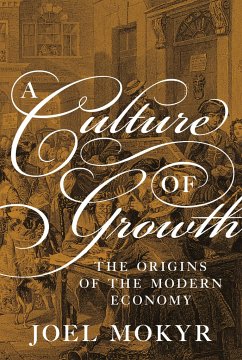
Ideology and the Evolution of Vital Institutions
Guilds, The Gold Standard, and Modern International Cooperation
Versandkostenfrei!
Versandfertig in 1-2 Wochen
115,99 €
inkl. MwSt.
Weitere Ausgaben:

PAYBACK Punkte
58 °P sammeln!
In this book, Thompson and Hickson strongly challenge the standard interpretation of the basis of growth and viability of dominant wealthy nations. Briefly, efforts of the economically wealthy and the government leaders to increase their wealth and protect it from aggressors, internal and external, are cast in a new evolutionary light. The challenge is to the idea that societies leading intellectual formulators of political and social policy have been helpful. Their alternative, and persuasive, interpretation is that the rise and survival of wealthier nations has been achieved because of an `e...
In this book, Thompson and Hickson strongly challenge the standard interpretation of the basis of growth and viability of dominant wealthy nations. Briefly, efforts of the economically wealthy and the government leaders to increase their wealth and protect it from aggressors, internal and external, are cast in a new evolutionary light. The challenge is to the idea that societies leading intellectual formulators of political and social policy have been helpful. Their alternative, and persuasive, interpretation is that the rise and survival of wealthier nations has been achieved because of an `effective democracy'.
The authors explain why an effective democratic state must avoid `narrow, short-sighted', rational appearing concessions to a sequence of aggressors. In short, the Thompson-Hickson interpretation of the rise of wealthy dominant nations does not rely on advice of superior intellectual advisors, but instead rests on the pragmatic, almost ad hoc, actions of democratic legislators.
The authors explain why an effective democratic state must avoid `narrow, short-sighted', rational appearing concessions to a sequence of aggressors. In short, the Thompson-Hickson interpretation of the rise of wealthy dominant nations does not rely on advice of superior intellectual advisors, but instead rests on the pragmatic, almost ad hoc, actions of democratic legislators.












